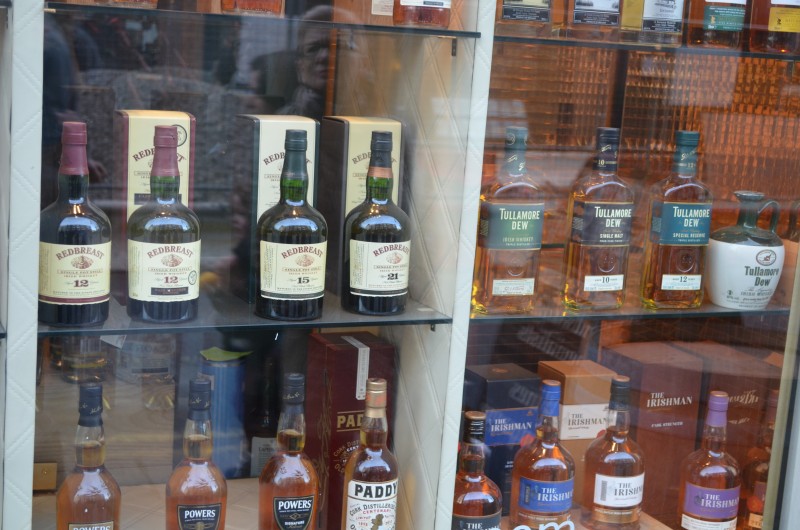Eoghan Crowley | Contributing Writer
How often have you heard someone suggest that tequila makes you crazy, or whiskey makes you violent, and vodka makes you cry? You’re probably wondering how does alcohol affect the body? Well it can affect our body in many different ways. I find that if I drink enough Captain Morgan’s on a night out I start to believe I’m actually Captain Jack Sparrow. However, despite the abundance of firsthand accounts of these differing effects occurring there is practically no evidence to support these claims. In fact, according to scientific research it appears that what you drink is irrelevant, what is important is how much you drink and how fast you drink it.
Let’s look at it like this, alcohol is alcohol, whether it be the four euro bottle of wine you got in Aldi, a bottle of Kinsey vodka or the God awful concoction found in the cup after an intense game of kings. All alcohol is ethanol and ethanol will get you drunk. What does differ is the concentration of alcohol in a drink. The fact that vodka has a higher concentration of alcohol than beer means that the same volume of different alcoholic drinks will get you more/less drunk. A simple experiment to demonstrate this can be done quite easily. Grab a friend, find two pint glasses, one full of beer and one full of vodka, one person drink the beer, the other the vodka in the same limited amount of time. Take note of the different stages of inebriation of both participants and then sit back and laugh at the vodka guinea pig as he gradually begins to forget his own name. It’s probably best to have an ambulance on hold for this particular experiment. So, because of the different volumes of alcohol in certain drinks, this led to the rise of the standard drink rule.
Any perceived difference between the drunkness you feel from the liquor and the inebriation you feel from beer has to do with the rate at which you consumed the ethanol, not the beverage via which you consumed it
The standard drink model suggests that when it comes to behavioural effects, the only difference between a pint and a shot is the mode of delivery. If you down a few shots of tequila in a row, you’ll experience a rapid spike in your blood alcohol level, and, presumably, a rapid drop in your inhibition and so on. But any perceived difference between the drunkness you feel from the liquor and the inebriation you feel from beer has to do with the rate at which you consumed the ethanol, not the beverage via which you consumed it. “The effects of alcohol are similar, whichever form they come in,” according to Dr. Guy Ratcliffe, medical director of the UK Medical Council on Alcohol. “Any difference is dependent on the rate at which it is drunk and the amount. Alcohol is a simple molecule that is rapidly absorbed into the bloodstream. So if you drink a few shorts – spirits are generally 40% ABV [alcohol by volume] – quickly, you’ll get a rapid increase in your blood alcohol level.”
But what about spirits that have similar concentration of alcohol, and are therefore equally efficient at getting you drunk? According to the Alcohol Is Alcohol argument, Tequila with an alcohol volume of 30% should have the same effect on you as vodka, rum, gin or whiskey with the same alcohol volume. Yet we all know someone who insists that tequila makes them bat shit crazy, that whiskey makes them angry, or that gin makes them sad. Why is that?
An alternative explanation for the belief that you can get different kinds of drunk could come down to the mixer that’s used. Tequila would obviously be taken as a straight shot because if anybody actually wants to sip on a glass of tequila for the taste, I think it can be agreed they have no taste buds or have some serious issues. Jägermeister however is typically mixed with Red Bull. As a stimulant Red Bull could produce a different reaction, as Morgan Freeman so eloquently puts it ‘”Boy, these red bull and vodkas are strange. I feel like I’m getting drunk and electrocuted at the same time.”. Similarly if you’re on the vodka and you’re mixing it with Red Bull -or for us students a bottle of Boost – who’s to say the drunk you’re experiencing is due to the alcohol, and not because of the fucking insane amount of caffeine you’re ingesting as well?
If people believe tequila makes them rowdier, they may opt for tequila when they want to be rowdy.
All of the above being said, despite the fact that there are no scientific studies (to my knowledge) that examine the behavioural effects that different alcoholic beverages may or may not have, the most common explanation for the varying effects of booze is that it’s all in your head. Your experience with a given alcohol is dictated largely by the social situations in which you choose to consume it. For example, if you are out looking to get drunk you’re always going to hit the shots, tequila for example, and that makes you drunker faster than if you were sipping it. Thus the reputation forms, and that leads to the issue of self-fulfilling prophecy. If people believe tequila makes them rowdier, they may opt for tequila when they want to be rowdy. And the next time someone blames their crazy behaviour on tequila or vodka, know that’s exactly how they wanted to be.
This idea that we change how we drink depending on what effect we desire to achieve may be the most logical explanation, but personally, no matter how much scientific evidence you put in front of me, give me a bottle of Captain Morgan’s and brace yourself for Captain Jack.
Photo by Samuel Riggs for The University Times







